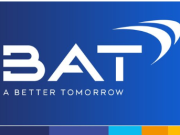Echoing the same concerns as local authorities, Superdrug said that the environmental impact caused by the waste produced by disposables, as well as their popularity among young people, were behind their decision to halt the sales of the products prematurely. Similarly, in January 2023, supermarket chain Waitrose announced it would stop selling the devices.
In 2022, the US equivalent of the UK supermarket chain, Walmart Inc, said it would stop sales of tobacco products in some of its 5,000 stores across the States. The company added that it would not disclose how many stores would be affected by the move, but highlighted that it would not be exiting the category entirely. The news was first reported by the Wall Street Journal, which revealed that locations in which this products category was being removed, included California, Florida and New Mexico.
The vape market’s consistent expansion
Meanwhile, data released in 2022 by ECigIntelligence, the renowned independent data analysis resource for the tobacco-alternatives industry, reported that the typical revenue for US vape stores has increased by nearly 15% in 2021. Across the 539 stores covered in a survey by the agency, average vape sales grew to around $35,000 per month.
Similarly, a report released in February 2023 by market research company, The Brainy Insights, had estimated the Vape Cartridge market for 2021 to be around 1.6 billion, and increasing at a CAGR of nearly 20% during 2022-2030.
The report titled, “Vape Cartridge Market Size Worth $9.9 billion by 2030: Fashionable Smoking Alternatives & Low-Vapor Devices are Gaining Attention; The Brainy Insights,” took into account that the growing accessibility of vape cartridge flavours through online and offline channels is expected to drive the market growth.
Harsh regulations feed the black market
The paper highlighted that the North American vape market will be driven by the introduction of enticing flavours and features by major vape manufacturers. On the other hand, the growth is generally being dampened by a rise in contraband products being sold as genuine ones and potentially containing toxic chemicals at dangerous levels. And of course while regulating authorities such as the US FDA are attempting to control the situation, as experts in the field keep highlighting, the harsher the restrictions they set are, the larger the black-market for contraband products grows.
Sadly the FDA seems set on rejecting PMTAs for vaping products manufactured by small businesses selling solely the safer alternatives, and is authorizing more heated tobacco products produced by tobacco companies, even if the latter are proven to be less safe than the former.
The issue with driving consumers online
In other news, a recent investigation by the Guardian in the UK, found that vapes advertised and sold as “nicotine-free” on Amazon, actually contained nicotine. The resulting report said that six of the seven tested products contained the substance, while some had a nicotine limit over the legal limit of 2ml.
The suspicion was first raised by a consumer, who on contacting Amazon was told to contact the seller directly. Subsequently the consumer contacted the Guardian who started the investigation. In response, Amazon has removed the products pending an investigation and stated that it would take enforcement action against any sellers violating set standards.












